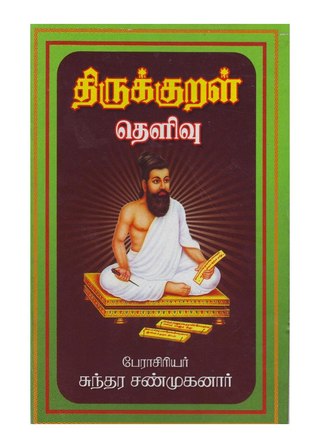| Part of a series on |
| Translation |
|---|
 |
| Types |
| Theory |
| Technologies |
| Localization |
| Institutional |
| Related topics |
|
As of 2024, there were at least two translations of the Tirukkural available in Assamese.
| Part of a series on |
| Translation |
|---|
 |
| Types |
| Theory |
| Technologies |
| Localization |
| Institutional |
| Related topics |
|
As of 2024, there were at least two translations of the Tirukkural available in Assamese.
The Kural text was translated into Assamese for the first time in 2012 by Malini Goswami, former vice-chancellor of Gauhati University. [1] : 30 [2] This was published by the Assam Publication Board in Guwahati. However, the first attempt to translate the text was initiated more than a decade earlier by former President of India A. P. J. Abdul Kalam. When his book Wings of Fire was translated into Assamese by Suresh Sharma, Kalam requested Sharma to translate the Kural into Assamese. However, the attempt did not come to fruition. [1] : 30
Within a few years following Goswami's translation, another translation was initiated by the Central Institute of Classical Tamil (CICT). The second translation was made by B. Vijayakumar, which was published by the CICT in 2023. [1] : 30 This translation was released by Indian Prime Minister Narendra Modi in December 2023. [1] : 31

The Central Institute of Classical Tamil (CICT) is a body established by the Government of India with a view to promoting the cause of Classical Tamil. It is located in Chennai.

The Tirukkuṟaḷ, or shortly theKural, is a classic Tamil language text consisting of 1,330 short couplets, or kurals, of seven words each. The text is divided into three books with aphoristic teachings on virtue (aram), wealth (porul) and love (inbam), respectively. It is widely acknowledged for its universality and secular nature. Its authorship is traditionally attributed to Valluvar, also known in full as Thiruvalluvar. The text has been dated variously from 300 BCE to 5th century CE. The traditional accounts describe it as the last work of the third Sangam, but linguistic analysis suggests a later date of 450 to 500 CE and that it was composed after the Sangam period.
Tirukkural, also known as the Kural, an ancient Indian treatise on the ethics and morality of the commoner, is one of the most widely translated non-religious works in the world. Authored by the ancient Tamil poet-philosopher Thiruvalluvar, the work has been translated into 57 languages, with a total of 350 individual translations, including 143 different renderings in the English language alone.

Tirukkural remains one of the most widely translated non-religious works in the world. As of 2014, there were at least 57 versions available in the English language alone. English, thus, continues to remain the language with most number of translations available of the Kural text.
Kannada has at least eight translations of the Tirukkural available as of 2014. Both prose and verse translations have been made in Kannada.
As of 2015, there are at least two translations of the Tirukkural available in the Polish language.
French has the second maximum number of translations of the Tirukkural among European languages, next only to English. As of 2015, there were at least 18 translations of the Kural text available in French.
As of 2024, there were at least five translations of the Tirukkural available in Arabic. The Kural text is the first, and so far the only, Tamil work to be translated directly into Arabic. It is also the first Tamil work to be released in the Arabian soil.

Among the European languages, German has the third highest number of translations of the Tirukkural, after English and French. As of 2015, there were at least eight translations of the Kural text available in German.
As of 2015, the Chinese language had two translations available of the Tirukkural.
Malayalam has seen the most number of Tirukkural translations than that of any other language in India. As of 2007, there are at least 21 translations of the Kural text available in Malayalam. Malayalam also has the distinction of producing the first ever translation of the Kural text among the languages in India and the world at large. The Annual Report of the Cochin Archeological Department for the year 1933–34 reported an unpublished manuscript of a Malayalam translation of the Tirukkural made in 1595.
Telugu is one of the Indian languages that has had the earliest Tirukkural translations in modern times. As of 2000, there were at least 14 translations of the Kural text available in Telugu.
As of 2015, there were at least three Gujarati translations available of the Tirukkural.
As of 2015, there were at least five Sanskrit translations available of the Tirukkural 724 into sanskrit
As of 2015, Tirukkural has been translated into Punjabi at least twice.
As of 2015, Urdu has at least two translations available of the Tirukkural.
As of 2015, Tirukkural has been translated into Dutch only once.
As of 2023, Marathi has at least three translation available of the Tirukkural, of which two are complete.
As of 2015, Fijian had at least two translations available of the Tirukkural.
Soibam Rebika Devi is an Indian translator who is best known for translating the Tirukkural into Meitei.